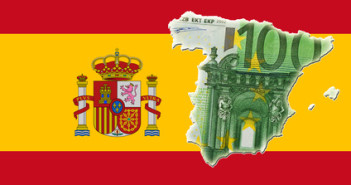Spain has the highest unemployment rate in the euro-zone 23.6% according to the latest data with more than double for younger workers.
Many multinational companies have a presence in Spain, but so far this doesn’t help battle the high unemployment. Perhaps a lower euro can help?
Foreign Presence
The unemployment picture is quite different for those who speak foreign languages such as English, French or German. It makes sense to study German and try your luck in the large successful German and Austrian economies.
Not only are Spaniards studying foreign languages in order to find a better future abroad, they also significantly increase their chances of finding a job in Spain.
Many multinational companies are based in Spain: labor is cheaper than in other European countries, it serves as a bridge between Latin America and Europe, and the country is attractive in terms of weather and culture.
US companies such as Yahoo!, Google Citibank and ADP are among the companies with presence in Spain.
Yet it also helps the vast amount of foreigners living in Spain. Actually, they don’t necessarily have to speak Spanish in order to find a job in Spain: knowledge of a foreign language or two (usually English and their native language) certainly opens opportunities.
Many Spaniards are frustrated with the high unemployment and the planned austerity measures, which will likely make things worse. Will multinational companies also feel this rage eventually?
Strong euro
Cheap labor is a competitive edge within Western Europe, but when it comes to exporting out of the euro-zone, the strong euro is a significant headwind. This makes investment by multinationals less attractive. Perhaps more investment would get more locals on board?
It also makes Spain’s more traditional exports more attractive: winemakers in the region of Rioja and also in other highly regarded regions are complaining about the high price of the euro, making exports to the US (for example) less attractive.
Tourism is a successful industry. Spain has a lot to offer, and is relatively cheap to its Mediterranean neighbors such as France and Italy. In addition, the Arab Spring caused many to change their plans on visiting North Africa and they found themselves in Spain in 2011.
Nevertheless, this could have been even stronger with a lower euro, that would have drawn more people from outside the euro zone.
Weak Spanish bond auctions hurt the euro, but only marginally.
Reforms
Spanish policymakers are hoping that balancing the budget and structural reforms in the labor market and banking sector will be enough to get the euro-zone’s fourth largest economy back on track.
Spain definitely needs some reforms, but the path would definitely be shorter is the value of the common currency would be lower. Or should Spain leave the zone and see its old-new peseta devalue?
Further reading: euro to dollar forecast.
